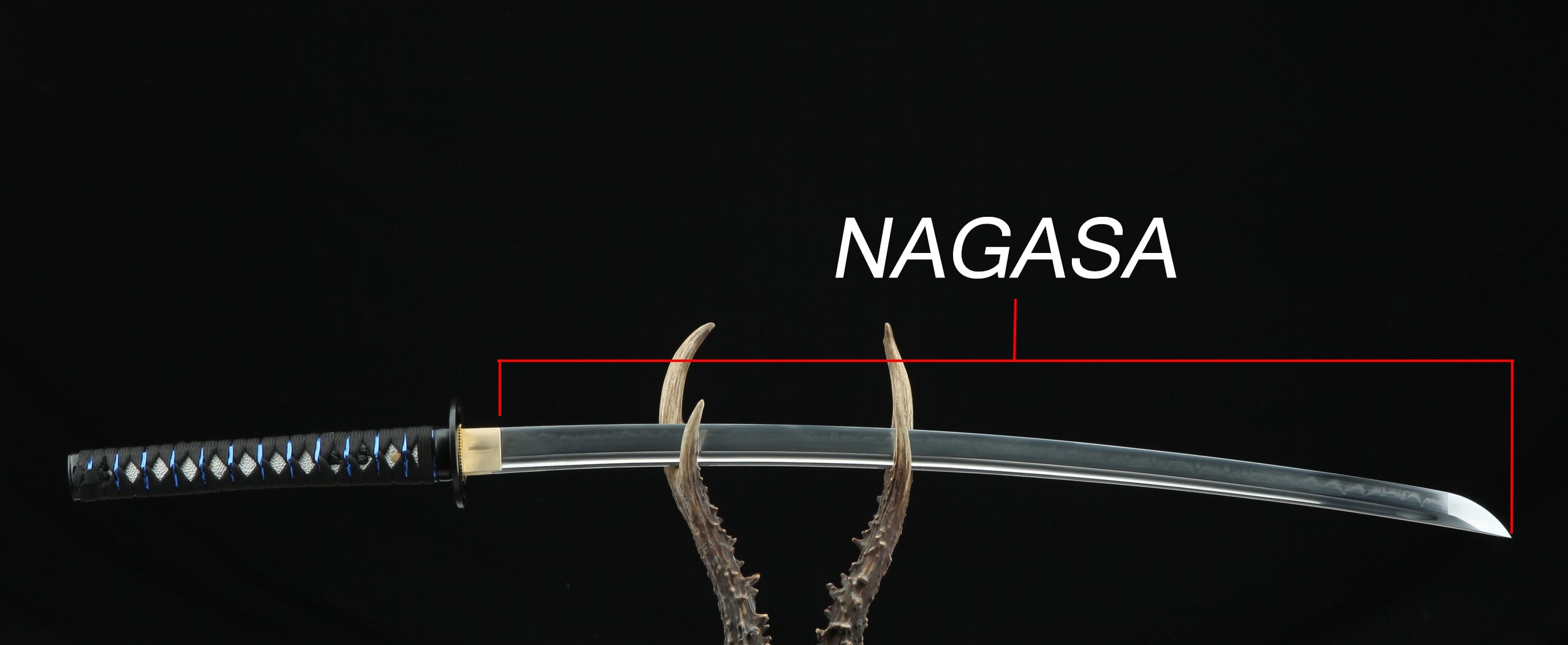The nagasa of a katana refers to the length of the blade, measured from the tip of the blade (kissaki) to the notch at the base of the blade (habaki). The length of the nagasa can vary depending on the era and the specific design of the katana, but it is generally between 60 and 73 centimeters (about 23 to 28 inches).
The length of the nagasa is an important factor in determining the size and weight of the katana, as well as its balance and handling. A longer nagasa can make the blade heavier and slower to maneuver, but it can also give the sword greater reach and cutting power. Conversely, a shorter nagasa may make the blade lighter and faster, but it may sacrifice some cutting ability.
How to choose the right size for your katana ?
In traditional Japanese sword making, the nagasa was often determined by the size of the wearer, with longer blades intended for taller people. However, in modern times, the nagasa of a katana is usually standardized according to the intended use of the sword and the preferences of the maker or user.
Here is a chart to help you choose the right size:
|
Size (cm) 155 158 161 164 167 170 173 175 177 180 180-182 182 185 187 190 193 195 198 |
Length (shaku) 1.95-2.10 2.00-2.15 2.00-2.20 2.05-2.25 2.10-2.25 2.10-2.30 2.15-2.35 2.15-2.35 2.20-2.40 2.25-2.45 2.25-2.50 2.30-2.50 2.35-2.55 2.35-2.60 2.40-2.60 2.45-2.65 2.45-2.70 2.50-2.70 |
Length (cm) 58-63 60-66 60-66 60-68 63.5-68 63.5-68 66-71 66-71 66-73 68-73 68-76 68-76 71-76 71-78 73-78 73-81 73-81 76-81 |

